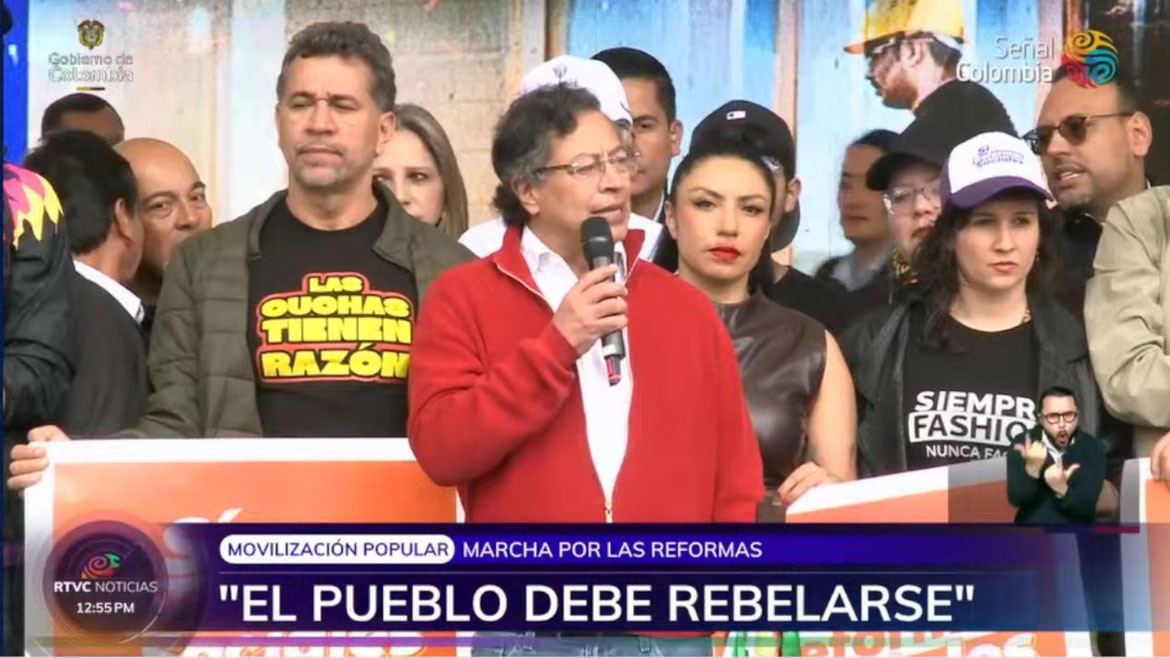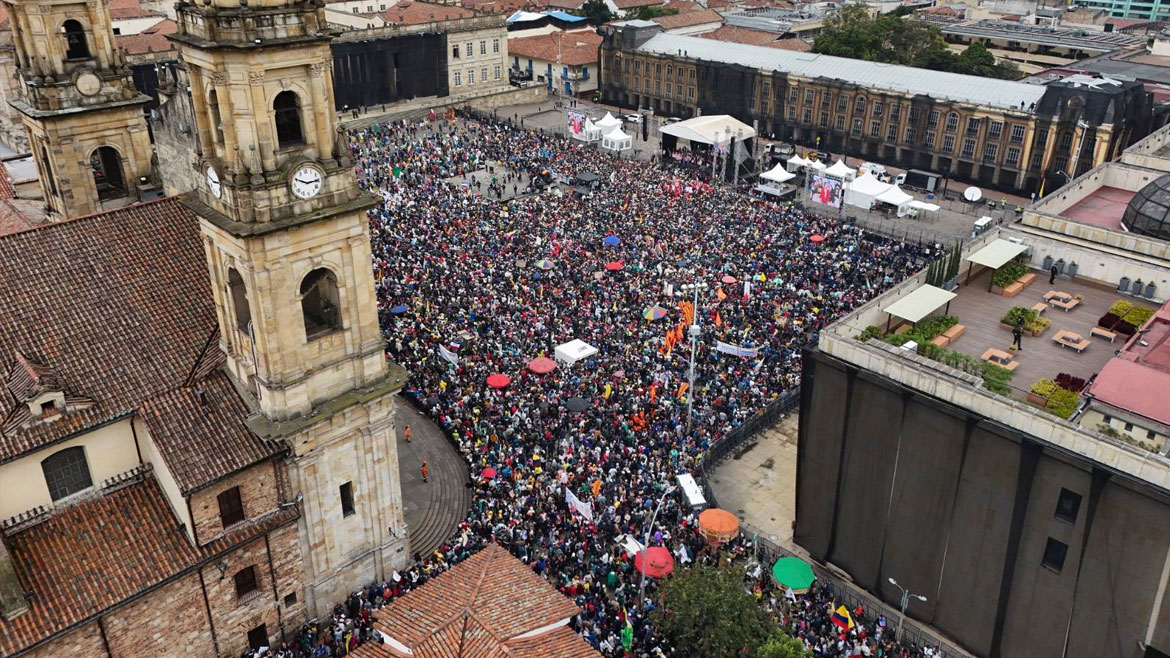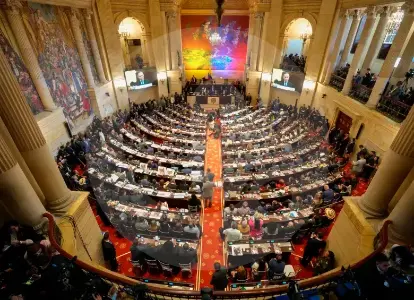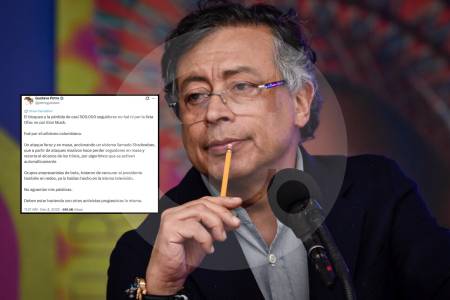
Petro calls for permanent protests in support of labor referendum
- Colombia
- marzo 18, 2025
- No Comment
- 168
President Gustavo Petro called on his supporters to organize permanent protests in support of a popular vote that would improve labor conditions in Colombia.
Petro spoke before tens of thousands of people who had joined protests in the capital Bogota in opposition to the announced sinking of the government’s labor reform proposal in a senate commission.
Petro spoke while the 14-person commission was still debating the proposal of eight of its members to sink the labor reform.
According to Petro, the lawmakers who opposed the labor reform “have betrayed the people.”
They have knelt before a false god, which is the god of money. They do not want the community mother to have a salary. They do not want the women of Colombia to have a deserved pension after raising their children, after giving us life. They do not want the day to end as naturalization has made it on earth, at six o’clock in the afternoon, because they want to exploit and exploit and exploit the human being more. Because they sold their hearts to greed, because they no longer have feelings.
Gustavo Petro
In response, said the president, “the people must rebel with the biggest possible force,” adding that “if the senators believe they are tyrants, the people will remove them.”
In order to secure the congressional approval, Petro called on his supporters for “permanent and growing” protests to force the Senate to approve a legally binding referendum on the contents of the labor reform.
They are summoned, the popular consultation begins. The mobilization is permanent and growing. It will have its peak not today, of the votes that have already sold their hearts in greed, but in the plenary of the Senate, where each senator must remember that he is nothing more than a simple representative of the people and that he must obey them.
Gustavo Petro
Unless the Senate commission surprisingly allows a plenary debate on the labor reform, the referendum could be organized within six months, according to political scientists.







